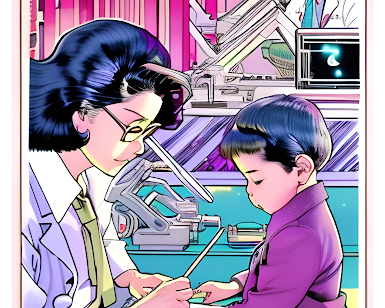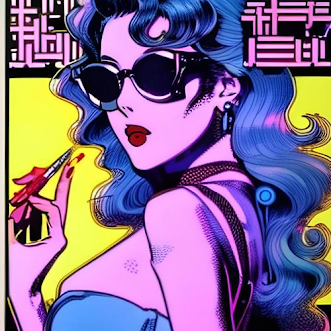Re: “Who Would Dare Remake 'Lolita' in the Age of #Metoo?”
[Content Warning: includes references to sexual abuse of children and minors]
A few months ago, I noticed an ad in the form of a question while reading a piece by Uri Klein from Haaretz about how The Big Lebowski earned its cult status. After hanging with Walter, Donny and El Duderino I rushed back to check on this Lolita crack. I clicked the damn link and landed on the top headline with a picture from Kubrick’s adaptation.
Who Would Dare Remake Lolita in the Age of Me Too?
There’s so much fresh blood in the industry being overlooked— directors with enough don’t-give-a-fuck-itude to shred the whole tired narrative down to splinters that I’d be surprised by anyone who wouldn’t dare. Let’s be picky, since we can afford to be. What would Lolita look like with an arrangement crafted by an unconventional director? A female horror director? For your consideration:
Jennifer Kent. Her film, Nightingale, showed the complicated inner dynamic of a woman who carries the mantle of both oppressor & oppressed. A woman who survived one of the most horrific scenes one could possibly even imagine, and who, in her barreling trek for revenge, through blood-tinted eyes was able to see the humanity of her guide, a small statured indigenous man who was loyal to a major fault. Kent is most well-known for The Babadook, a pointedly non-jump-scare horror with allegorical imagery that had me sobbing halfway through. Kent is talented, dynamic and emotionally piercing.
Lucrecia Martel. (The Holy Girl, The Headless Woman). Martel’s movie, The Headless Woman is not plot-driven, but instead focuses on conveying Verónica’s disintegration as she becomes consumed by guilt for what she has – or thinks she has – done. Though complex, challenging and sometimes frustrating, with the superb Onetto’s underplayed, nuanced performance at its core, is also haunting and mesmerizing, and possibly the purest piece of cinema you will see all year.
Karyn Kusama. (Destroyer, Jennifer’s Body). Prano Bailey Bond. (Censor). Mimi Cave. (Fresh). Mariama Diallo. (Hair Wolf, Master).
I would contend that Lolita *has* been remade several times since 1962, and probably a half-dozen since the dawn of the era of “wealthy, powerful men being ostracized, sometimes penalized, for their otherwise willfully overlooked penchant for rape” aka “MeToo.”
I’m laughing (though it’s not actually funny) as the first two films that come to mind are protagonized by Woody Allen and Kevin Spacey, respectively. In Manhattan, Allen’s Isaac Davis is dating a 17 year old Mariel Hemingway, upon which Diane Keaton’s Mary comments, “Somewhere, Nabokov is smiling.” In American Beauty, Spacey’s character sleepwalks through a dreamy field of clichés, lusting after his daughter’s best friend, the 16 year old Angela Hayes. This tale is haunted by a motif of red rose petals. Red, like the lollipop pressed between Dolores’s lips on the promo poster for Kubrick’s adaptation. The color of plausible deniability, apparently, that adorns the foul fantasies of aging white men.
Most recently for me was the glaringly un-self-aware Call Me By Your Name (Luca Guadagnino), in which the ephebophilic relationship between the protagonist and his boss’s son was so blissfully romanticized that I wonder if the storytellers might have drawn inspiration from Nabokov’s most famous work.
Lolita, translated by a modern and sharp eye for the cinematic parable, might peel the veneer of romanticism and the decadent temptation of forbidden love, and rather emerge as a dark psychological drama centered on a pathetic middle-aged predator and an adolescent girl who is blinded by her desperation to be loved than it does a how-to guide.
We could all use a moral cold-shower after the year that gave us Blond.


